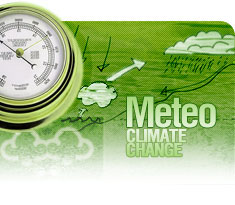Tropical Cyclone Harold was a wake-up call that the climate crisis is not slowing down despite the Covid-19 pandemic, Willy Missack and Fenton Lutunatabua write
Since the start of this month, the hustle and chatter in the usually busy communal areas in Vanuatu have dwindled to the sound of a lone bus rattling along the main streets because of the social distancing measures imposed by the government.
The social distancing measures are a concerted attempt to protect the country from the spread of the Covid-19 virus because we have only two respirators in a country of 307,145 people. Aid and relief workers, who are mostly from Australia and New Zealand, have returned home.
This is not a public holiday, it is a national emergency.
At a time when the entire planet is adjusting to the adverse effects of the global Covid-19 pandemic, climate-vulnerable nations such as those in the Pacific are paying an even bigger price.
When thoughts were being composed for this piece, heavy rain and winds raged outside, the nails holding down roofs trying their best to weather yet another storm, this time another severe Category 5 Tropical Cyclone, Harold. Weather reports from the Meteorological Offices in both Vanuatu and Fiji, indicated dire urgency and that preparations for TC Harold had to be made even amidst a lockdown.
As the cyclone wreaked havoc on our already under-resourced communities, authorities lifted the ban on public gatherings and domestic travel last weekend to allow people to travel to evacuation centres and other safe places, including caves.
Despite the relaxed restrictions, there was fear among people that we may not be prepared as we usually would be for such a natural disaster, with limited resources now stretched between dealing with Covid-19 and the cyclone.
Two life-threatening disasters
There are now two life-threatening disasters upon us. It is a wake-up call to remind us that the climate crisis is not slowing down despite the Covid-19 pandemic.
The ongoing cycle of devastation and trauma inflicted upon Vanuatu, Fiji and the rest of the Pacific Islands will not ease anytime soon as the climate crisis intensifies and the threat of Covid-19 escalates.
It raises new questions and challenges: What does 'shelter in place' mean during a climate catastrophe when homes are destroyed and communication lines are gutted? What does assistance really look like in a time of social distancing, when impacted communities are so geographically isolated, with limited possibilities of aid reaching them on time?
It is critical to continue to drive home the message that the climate crisis is caused by countries that rely heavily on fossil fuels. Fossil fuel companies are responsible for emitting more than one-third of all greenhouse gas emissions, linked to half the rise in global temperature and close to a third of the sea level rise between 1880 and 2010, according to a report published by the Union of Concerned Scientists.
Despite COP26 and other climate meetings being postponed till 2021, the international climate agenda cannot wait until after this pandemic to address the urgency of climate change. Commitments to the Paris Agreement must remain front and centre of our discussions, particularly to address loss and damage associated with climate change impacts in developing countries.
Even as economic recovery plans are being put together in capitals of rich countries, we need to remind them that they must deliver on the promised USD$100 billion per year by 2020, and through to 2025, to support climate actions in developing countries.
So far, developed countries have contributed at most USD$71 billion a year, which is outranked by the profits raked in from the fossil fuel industries in the same countries. Rebuilding their own economies sustainably must be accompanied with delivering on climate finance to others.
Major emitters need to be held accountable to these commitments by committing to their Nationally Determined Contributions (NDCs) that urgently reduce emissions as a means to halting the climate crisis.
The once climate-conscious Japan who proudly facilitated the Kyoto Protocol (1997) is now the world's fifth-biggest emitter. Japan continues to steam ahead with building new coal-powered enterprises, using the current Covid-19 pandemic as an excuse to water down its NDC commitments and resolutely achieve its 2015 goal to reduce greenhouse gas emissions by 26% from 2013 levels by 2030. This sly tactic is a slap in the face of developing countries who are battling the effects of the climate crisis.
What would help our communities in this time of dire need is a Just Recovery - giving power back to the people by building on existing social systems of mutual aid to help each other during disastrous circumstances when our own governments are not in the position to respond.
Confronting the climate crisis, especially during a global pandemic, should not be the redirection of aid, as in the case of Pacific neighbour Australia. It needs to be an urgent commitment from high emitting countries, to abandon their addiction to fossil fuels and make polluters pay for the damage.
Developed countries like Japan cannot get away with low-ambition NDCs that fly in the face of science and equity, and steam ahead with building new coal-fired power plants in 2020. The Covid-19 pandemic cannot be an excuse for major emitters to regress on their climate targets - it must be the reason that they choose to reimagine a renewed sustainable future.
Developed economies are prepared to put €750 billion (NZ$1.36 trillion) on the table to stop the coming recession. This money must be given out first to people who need it and not to bail out polluters.
Assistance should also be channeled to countries like Vanuatu and Fiji, whose economies rely on international tourism and have experienced a severe downturn in business due to the COVID-19 pandemic, forcing many out of jobs. It should also be directed to strengthen healthcare systems, precisely since Australia has slashed Pacific aid funding for health.
What would help our communities in this time of dire need is a Just Recovery - giving power back to the people by building on existing social systems of mutual aid to help each other during disastrous circumstances when our own governments are not in the position to respond.
It means rebuilding our global economies in a way that works for everyone - and not just the already-wealthy few.



 Română
Română English
English


